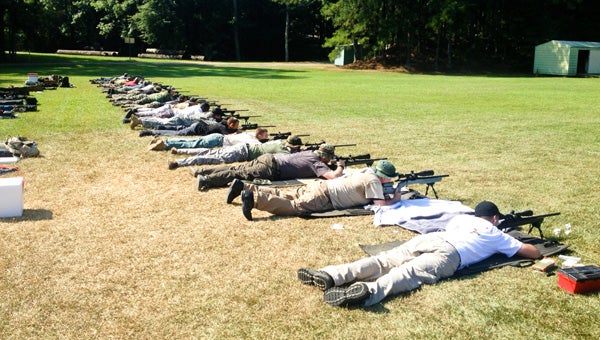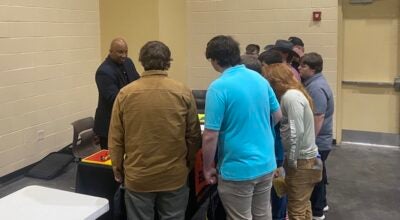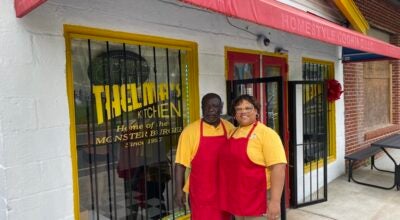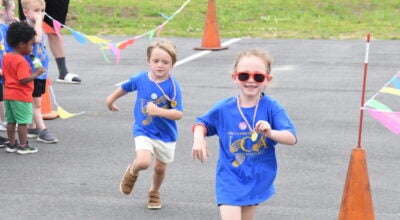Training helps police snipers stand ready to take the shot
Published 5:52 pm Thursday, September 26, 2013

Twenty law enforcement personnel, including officers from the Clanton Police Department and the Shelby County and Chilton County sheriff’s departments, recently passed Buford Boone’s sniper school in Tuscaloosa. (Contributed)
By Neal Wagner | Shelby County Reporter
Clanton Police Department Cmdr. David Clackley, like trained snipers from many other area law enforcement agencies, fields the same question more often than he would like.
“People always ask ‘Why would a small department like Clanton need a sniper?’” Clackley said. “If you think about it, most of the hallways in the schools around here are 70, 80 yards long.
“If someone is holding a child hostage at gunpoint on the other end of the hall, you don’t want to try to shoot precisely with a pistol,” Clackley added. “If an innocent person’s life is in danger, you don’t want to miss that first shot.”
Clackley recently joined fellow CPD officer Chris Whittle, Chilton County Sheriff’s Office deputy Britton Langston and Shelby County Sheriff’s Office deputy Nathan Kendrick in passing retired Federal Bureau of Investigation agent Buford Boone’s sniper/observer school in Tuscaloosa.
Boone served in the FBI for 24 years, 15 of which saw him as the supervisory special agent of the FBI’s Ballistic Research Facility in Quantico, Va. During his tenure with the FBI, Boone also was a sniper and regularly led sniper schools in the agency.
Since his retirement in 2012, Boone has continued leading sniper schools on a volunteer basis for a multitude of law enforcement agencies.
Over the years, Boone has led 48 sniper schools serving more than 900 total students.
“I’ve done them all over the country and even one outside the country,” Boone said, noting most of his schools are held in Tuscaloosa now. “There’s a lot more to being a sniper than just shooting. Shooting is a big part of my school, but it’s only a small part of what a sniper does.”
Learning the mechanics
During his classes, Boone runs his students through a gamut of mental and physical training. Before the students take to the range, they learn about everything from the correct type of ammunition to use to the appropriate situation to take a shot.
“It’s very important to know when to take a shot and not. There’s a difference between being able to take a shot and that being the right thing to do,” Boone said. “If the subject will give up and surrender peacefully, that’s how we prefer to end a situation. We only shoot when an innocent life is at stake.”
In real-world scenarios, snipers often observe and relay information to other officers or troops much more frequently than they shoot, Boone said.
“Most of what a sniper does is observe and report,” Boone said. “They are in a good position to do so.”
Once the officers begin shooting at Boone’s range, most use their .308-caliber rifles to hit miniscule targets.
The benchmark test comes when the students are tasked with hitting a 2-by-4-inch target from 100 yards away 90 percent of the time they pull the trigger.
“If you miss that first shot, you fail,” Boone said. “In real life, if you miss that first shot, things can go quite bad quite quickly.”
Preparing for the worst
For Chilton County Sheriff Kevin Davis, Boone’s training is something he hopes his deputies never have to put into action.
“It’s training you hope you don’t have to use, but you want to have it for obvious reasons,” Davis said, noting Langston won the shooting competition at Boone’s most recent class. “With all the active shootings and scenes that play out on the national news, it’s good to be prepared.”
Kendrick, a member of the Shelby County Sheriff’s Office Tactical Response Unit, said he stands ready for personal reasons.
“If something ever happened to my children or my loved ones, I would want someone who put in the time to train right,” Kendrick said. “When I train, I always think ‘What if that was my kid being held hostage?’”
None of the local officers who recently passed Boone’s class have had to take a sniper rifle shot to take a suspect down, but most have stood ready to do so during past incidents.
“We are a small community, but there are six times we have had folks barricade themselves in their homes,” said Clanton Police Chief Brian Stilwell. “We have had our sniper ready to take the shot, but we have never had to resort to that.
“I hope I never have to give that order.”






